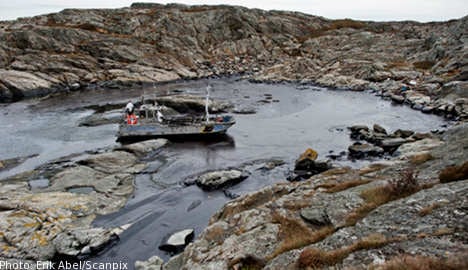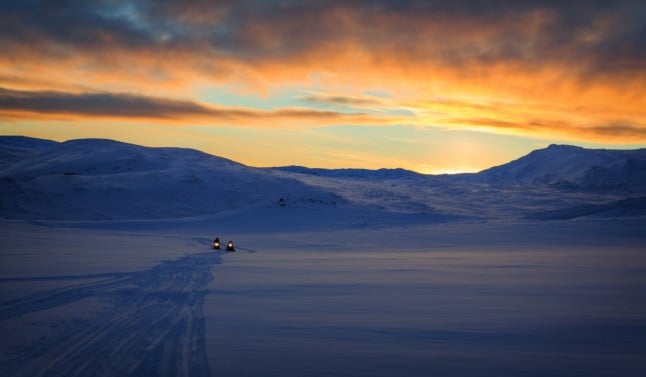“It is going well, we’ve got rid of almost 150 cubic metres of oil now. The work has been going on around the clock since Friday,” said Jonas Berg of the coast guard to news agency TT.
The clean up efforts following the spill near Tjörn, in western Sweden, had continued well into Saturday night resulting in the removal of 110,000 gallons of oil.
Five coast guard ships, four smaller vessels, an airplane and about 50 coast guard personnel have been involved in the operation at the west coast’s strait between Härön and Kyrkesund.
Surveillance aircraft was sent up Sunday morning to get an overview of how much oil remains and the extent of its spread.
“There is an awful lot,” Jonas Åkerlund, operator with the Western Region’s Coast Guard, told local newspaper Göteborgs Posten (GP) on Sunday morning.
“As of now, the oil has not spread – it remains inside the booms at Härön. It appears we will have good weather today so we hope to remove a lot of the oil during the day.”
Jonas Berg agreed on Sunday afternoon that the coast guard had the situation under control.
The oil slick tracks from a ship collision on September 10th off the Danish west coast.
However, Gothenburg’s Bird Centre (Göteborgs Fågelcentral) had received 15 oiled birds by Saturday afternoon. The extent of the damage to birds and other wildlife still remains uncertain.
“It is difficult to assess how many birds are affected. But presumably it can involve hundreds, perhaps up to a thousand. There may be injured birds on the islands and reefs that can only be reached by boat,” Tommy Järås from the bird centre told GP.
Several of the birds submitted to the centre were beyond salvation.



 Please whitelist us to continue reading.
Please whitelist us to continue reading.
Member comments